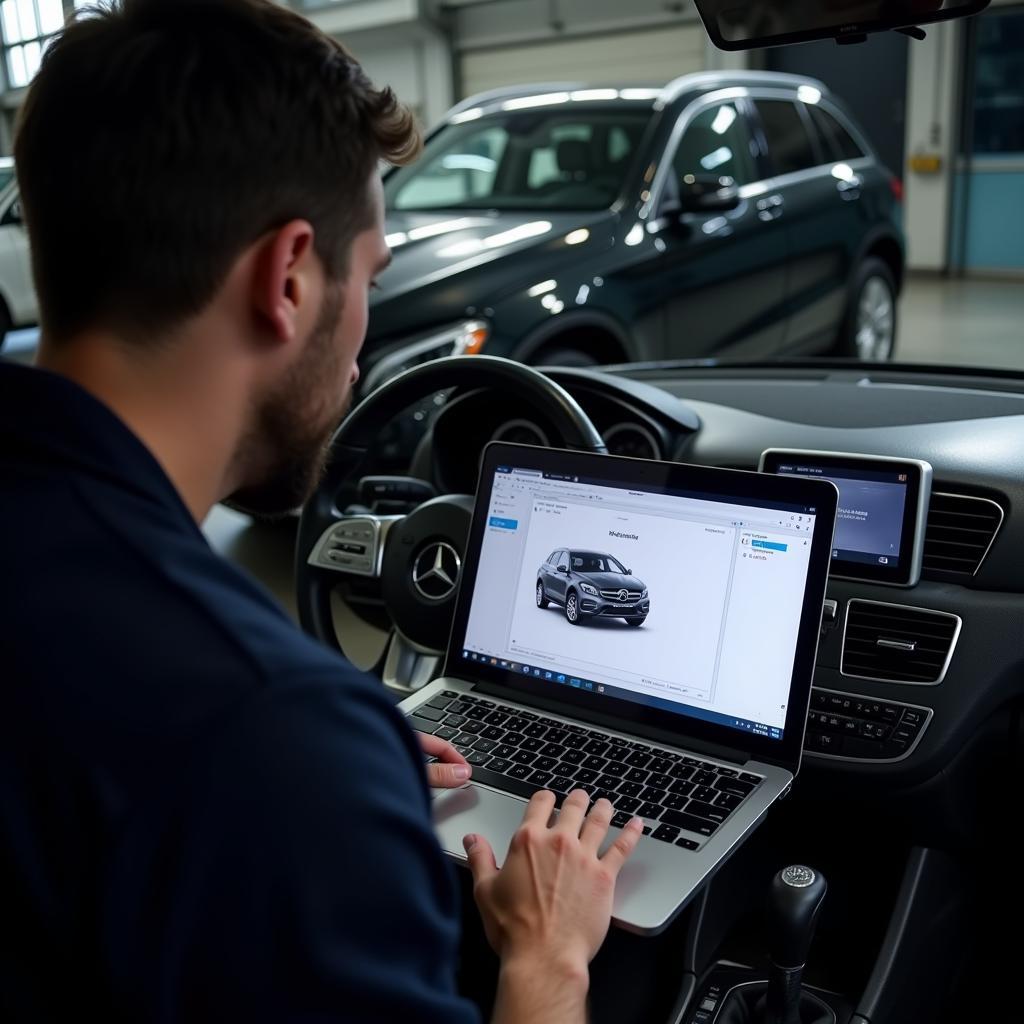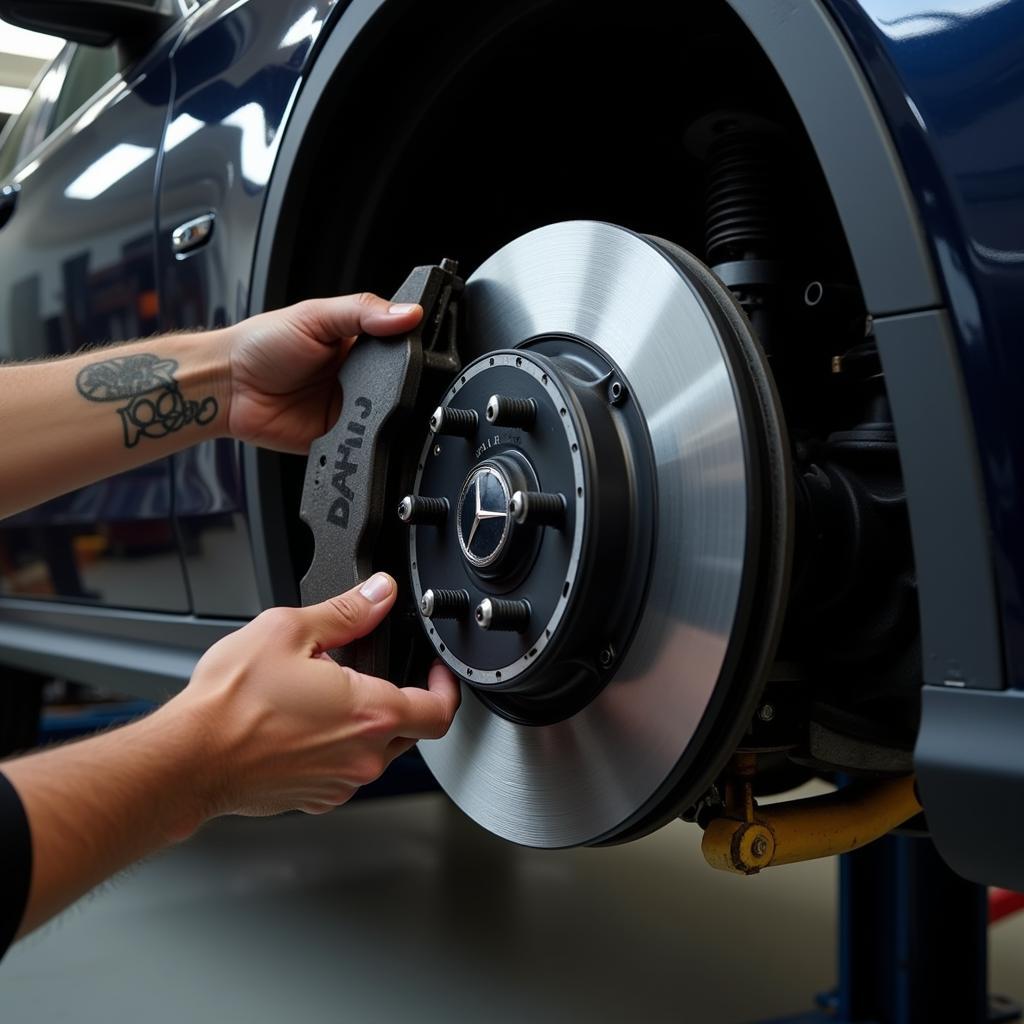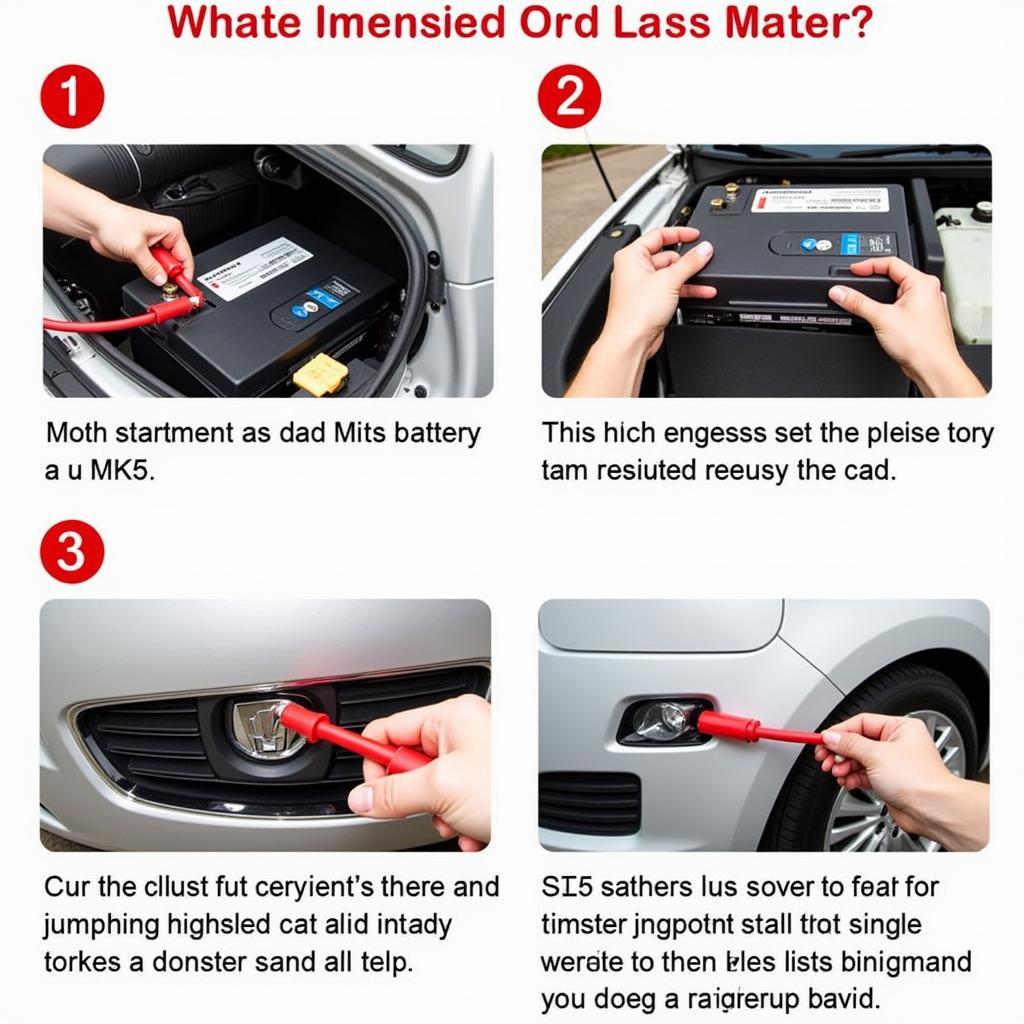The brake assist warning light on your Mercedes dashboard can be a cause for concern. This system, designed to help you brake more effectively in emergencies, is crucial for your safety on the road. If the warning light is illuminated, it indicates a potential malfunction that needs immediate attention.
Understanding Brake Assist
Mercedes Brake Assist, also known as Brake Assist System (BAS), is a safety feature that recognizes emergency braking situations and maximizes braking pressure. When the system detects a sudden and forceful application of the brake pedal, it interprets this as an emergency and automatically increases braking force to bring the vehicle to a stop as quickly as possible. This can significantly reduce stopping distances, especially in situations where every second counts.
Common Causes of the Brake Assist Warning Light
While a malfunctioning brake assist system is a serious issue, the good news is that it’s often triggered by solvable problems. Here are some of the most common reasons why your Mercedes brake assist warning light might be on:
- Low Brake Fluid: Brake fluid is the lifeblood of your braking system. If the fluid level is low, it can trigger the brake assist warning light. This usually indicates a leak in the system, which requires immediate attention.
- Faulty Brake Light Switch: The brake light switch signals your brake lights to activate when you press the brake pedal. If this switch malfunctions, it can also affect the brake assist system and trigger the warning light.
- Problem with the Brake Assist Sensor: Like any sensor, the brake assist sensor can fail over time. This sensor monitors the speed and force at which you apply the brakes and can trigger the warning light if it’s not working correctly.
- Issue with the ABS System: Since the brake assist system works in conjunction with the Anti-lock Braking System (ABS), a problem with the ABS can also impact the brake assist system.
What to Do When the Warning Light Turns On
If the brake assist warning light illuminates on your Mercedes dashboard, it’s crucial not to ignore it. Here’s a step-by-step guide on what you should do:
- Assess the Situation: If the warning light appears while driving, find a safe place to pull over as soon as possible.
- Check the Brake Fluid: With the engine off, carefully open the hood and locate the brake fluid reservoir. Check the fluid level, and if it’s low, add the appropriate brake fluid.
- Inspect the Brake Pedal: Ensure the brake pedal is not stuck and moves freely. If you notice any resistance or unusual behavior, it could indicate a more serious problem.
- Contact a Qualified Mechanic: Even if you’ve topped up the brake fluid and don’t notice any immediate issues, it’s crucial to have your Mercedes inspected by a qualified mechanic specializing in Mercedes vehicles. They will have the diagnostic equipment to identify the root cause of the problem.
Importance of Remote Diagnostics and Software Solutions
Modern Mercedes vehicles are equipped with sophisticated electronic systems. This allows for advanced remote diagnostics and software solutions that can be instrumental in identifying and even fixing certain brake assist issues.
 Remote diagnostics being performed on a Mercedes-Benz braking system
Remote diagnostics being performed on a Mercedes-Benz braking system
For instance, a skilled technician using specialized software can often pinpoint the exact sensor or component malfunctioning in the brake assist system. In some cases, a simple software update might be all that’s needed to rectify the problem.
[warner electric clutch brake]
This remote approach can save you time and money compared to traditional diagnostic methods. It highlights the growing importance of software-driven solutions in the automotive industry, particularly in the realm of vehicle diagnostics and repair.
Preventing Brake Assist Issues
While some brake assist issues are unavoidable due to wear and tear, you can take proactive steps to minimize the risk:
- Regular Brake Fluid Checks: Make it a habit to check your brake fluid level regularly, ideally every time you check your engine oil.
- Timely Brake Inspections: Schedule routine brake inspections with a qualified Mercedes mechanic. This will help identify potential problems early on.
- Address Warning Lights Promptly: Never ignore any warning lights on your dashboard, especially those related to the braking system.
 Routine brake inspection being performed on a Mercedes-Benz
Routine brake inspection being performed on a Mercedes-Benz
Conclusion
The brake assist warning light in your Mercedes is a safety-critical indicator that should never be disregarded. By understanding the system, recognizing common causes for concern, and knowing how to respond, you can help ensure your safety and that of your passengers. Remember, timely inspections and proactive maintenance are always the best ways to keep your Mercedes braking system in optimal condition.

